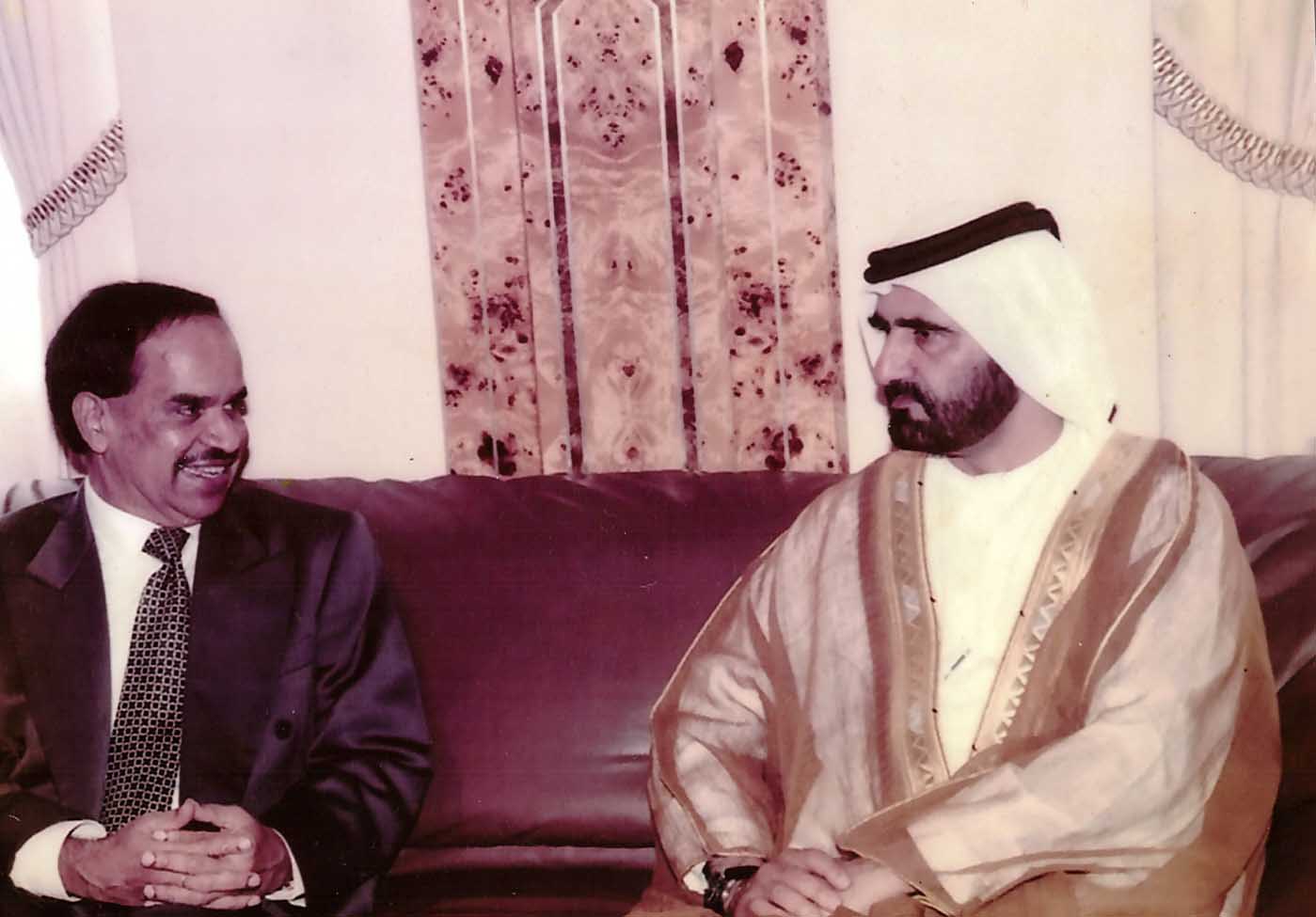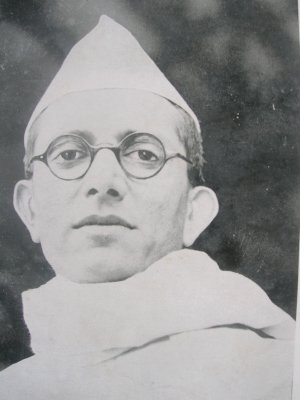|
Muthal Puredath Murlidhar Menon
Muthal Puredath Muralidhara Menon (10 July 1942 – 25 January 2013) was an Indian diplomat, ambassador to Bahrain, Maldives, United Arab Emirates and Brazil. Early life Menon was born in Angadipuram, Malappuram District, Kerala on 10 July 1942. His mother was M.P. Narayanikutty Menon, and father was V.P.K. Nair. He was the grandnephew of the famous freedom fighter and Malabar rebellion leader, M.P. Narayana Menon. Being a member of the matrilineal Nair society, his family name was taken from his mother's side of the family. He attended college is the Guruvayurappan College in Calicut, on a scholarship. Upon graduation, he worked as a teacher, and then as a chemist in the explosives factory in Aruvankadu. He then joined the Indian Army Short Services Commission, which had been established in the aftermath of the India-China War of 1962. After serving in the Indian Army for 5 years, he took the Indian civil service exam and joined the Indian Foreign Service. Diplomatic career ... [...More Info...] [...Related Items...] OR: [Wikipedia] [Google] [Baidu] |
Angadipuram
Angadipuram is a major suburb of Perinthalmanna town, in Malappuram District of Kerala, southern India. It was the capital of the powerful medieval kingdom of Valluvanad. Angadipuram is also known for Angadipuram Laterite, a notified go-heritage monument. Angadipuram is famous for its two temples, the Thirumandhamkunnu Temple and the Tali Mahadeva Temple. Kozhikode - Palakkad National Highway 966 passes through the town and Angadipuram Railway Station is one of the major railway station on the Nilambur - Shornur Line of Palakkad Division, Southern Railways. It is connected to major cities Kochi and Thiruvananthapuram through this line. Places of interest Angadippuram is actually a temple town, as it is rich in the case of number of temples. Nearly 12 temples are there in the village. The Thirumandhankunnu Bhagawathy Temple was built by the erstwhile kings/rulers of Valluvanad. The goddess Bhagavathi at the temple is the family god (kuladaivam) of the Valluvokonathir ... [...More Info...] [...Related Items...] OR: [Wikipedia] [Google] [Baidu] |
India-China War
The Sino-Indian War took place between China and India from October to November 1962, as a major flare-up of the Sino-Indian border dispute. There had been a series of violent border skirmishes between the two countries after the 1959 Tibetan uprising, when India granted asylum to the Dalai Lama. Chinese military action grew increasingly aggressive after India rejected proposed Chinese diplomatic settlements throughout 1960–1962, with China re-commencing previously-banned "forward patrols" in Ladakh after 30 April 1962. Amidst the Cuban Missile Crisis, China abandoned all attempts towards a peaceful resolution on 20 October 1962, invading disputed territory along the border in Ladakh and across the McMahon Line in the northeastern frontier. Chinese troops pushed back Indian forces in both theatres, capturing all of their claimed territory in the western theatre and the Tawang Tract in the eastern theatre. The conflict ended when China unilaterally declared a ceasefire on ... [...More Info...] [...Related Items...] OR: [Wikipedia] [Google] [Baidu] |
Indian Foreign Minister
The Minister of External Affairs (or simply, the Foreign Minister, in Hindi ''Videsh Mantri'' ) is the head of the Ministry of External Affairs (India), Ministry of External Affairs of the Government of India. One of the senior-most offices in the Cabinet of India, Union Cabinet, the chief responsibility of the Foreign Minister is to represent India and its government in the international community. The Foreign Minister also plays an important role in determining Indian foreign policy. Occasionally, the Foreign Minister is assisted by a Minister of State for External Affairs or the lower-ranked Deputy Minister of External Affairs. India's first Prime Minister, Jawaharlal Nehru, also held the Foreign Minister post throughout his 17-year premiership of the country; he remains the country's longest-serving Foreign Minister. Several other Prime Ministers have since held the additional charge of foreign minister, but never has any other cabinet minister held additional charge of the o ... [...More Info...] [...Related Items...] OR: [Wikipedia] [Google] [Baidu] |
Atal Bihari Vajpayee
Atal Bihari Vajpayee (; 25 December 1924 – 16 August 2018) was an Indian politician who served three terms as the 10th prime minister of India, first for a term of 13 days in 1996, then for a period of 13 months from 1998 to 1999, followed by a full term from 1999 to 2004. Vajpayee was one of the co-founders and a senior leader of the Bharatiya Janata Party (BJP). He was a member of the Rashtriya Swayamsevak Sangh, a Hindu nationalist volunteer organisation. He was the first Indian prime minister not of the Indian National Congress to serve a full term in office. He was also a renowned poet and a writer. He was a member of the Indian Parliament for over five decades, having been elected ten times to the Lok Sabha, the lower house, and twice to the Rajya Sabha, the upper house. He served as the Member of Parliament for Lucknow, retiring from active politics in 2009 due to health concerns. He was among the founding members of the Bharatiya Jana Sang ... [...More Info...] [...Related Items...] OR: [Wikipedia] [Google] [Baidu] |
Morarji Desai
Morarji Ranchhodji Desai (29 February 1896 – 10 April 1995) was an Indian independence activist and politician who served as the 4th Prime Minister of India between 1977 to 1979 leading the government formed by the Janata Party. During his long career in politics, he held many important posts in government such as Chief Minister of Bombay State, Home Minister, Finance Minister and 2nd Deputy Prime Minister of India. Following the death of Prime Minister Lal Bahadur Shastri, Desai was a strong contender for the position of Prime Minister, only to be defeated by Indira Gandhi in 1966. He was appointed as Deputy Prime Minister (as Minister of Finance) in Indira Gandhi's cabinet, until 1969. When Indian National Congress split in 1969 he became a part of the INC (O). After the controversial emergency was lifted in 1977, the political parties of the opposition fought together against the Congress (I), under the umbrella of the Janata Party, and won the 1977 election. Desai w ... [...More Info...] [...Related Items...] OR: [Wikipedia] [Google] [Baidu] |
Janata Party
The Janata Party ( JP, lit. ''People's Party'') was a political party that was founded as an amalgam of Indian political parties opposed to the Emergency that was imposed between 1975 and 1977 by Prime Minister Indira Gandhi of the Indian National Congress. In the 1977 general election, the party defeated the Congress and Janata leader Morarji Desai became the first non-Congress prime minister in independent modern India's history. Raj Narain, a socialist leader, had filed a legal writ alleging electoral malpractice against Indira Gandhi in 1971. On 12 June 1975, Allahabad High Court found her guilty of using corrupt electoral practices in her 1971 election victory over Narain in the Rae Bareli constituency. She was barred from contesting any election for the next six years. Economic problems, corruption and the conviction of Gandhi led to widespread protests against the Congress (R) government, which responded by imposing a State of Emergency. The rationale was that of pr ... [...More Info...] [...Related Items...] OR: [Wikipedia] [Google] [Baidu] |
Prime Minister Of India
The prime minister of India (IAST: ) is the head of government of the Republic of India. Executive authority is vested in the prime minister and their chosen Council of Ministers, despite the president of India being the nominal head of the executive. The prime minister is often the leader of the party or the coalition with a majority in the lower house of the Parliament of India, the Lok Sabha, which is the main legislative body in the Republic of India. The prime minister and their cabinet are at all times responsible to the Lok Sabha. The prime minister is appointed by the president of India; however the prime minister has to enjoy the confidence of the majority of Lok Sabha members, who are directly elected every five years, lest the prime minister shall resign. The prime minister can be a member of the Lok Sabha or of the Rajya Sabha, the upper house of the parliament. The prime minister controls the selection and dismissal of members of the Union Council of Ministers ... [...More Info...] [...Related Items...] OR: [Wikipedia] [Google] [Baidu] |
Indian Ambassador To The Soviet Union
Indian or Indians may refer to: Peoples South Asia * Indian people, people of Indian nationality, or people who have an Indian ancestor ** Non-resident Indian, a citizen of India who has temporarily emigrated to another country * South Asian ethnic groups, referring to people of the Indian subcontinent, as well as the greater South Asia region prior to the 1947 partition of India * Anglo-Indians, people with mixed Indian and British ancestry, or people of British descent born or living in the Indian subcontinent * East Indians, a Christian community in India Europe * British Indians, British people of Indian origin The Americas * Indo-Canadians, Canadian people of Indian origin * Indian Americans, American people of Indian origin * Indigenous peoples of the Americas, the pre-Columbian inhabitants of the Americas and their descendants ** Plains Indians, the common name for the Native Americans who lived on the Great Plains of North America ** Native Americans in the Uni ... [...More Info...] [...Related Items...] OR: [Wikipedia] [Google] [Baidu] |







